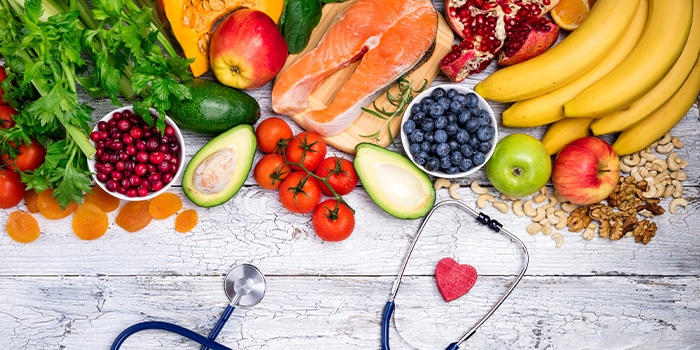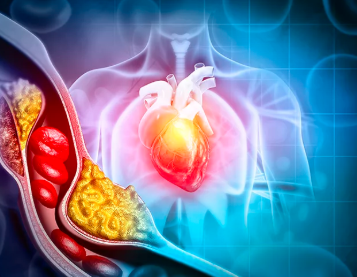Your heart is at the center of everything you do—literally and figuratively. The foods you eat have a profound impact on your cardiovascular health, playing a major role in preventing heart disease, lowering blood pressure, managing cholesterol, and maintaining a healthy weight. A heart-healthy diet isn’t just about cutting back—it’s about making smart, nourishing choices that support your body from the inside out.
In this article, we’ll explore the foundations of a heart-healthy diet, key foods to include (and avoid), and practical tips for building meals that fuel a strong and resilient heart.
Why Heart Health Matters
Cardiovascular disease (CVD) is the leading cause of death worldwide, but it’s also largely preventable. Adopting a heart-healthy eating pattern can help:
- Lower bad cholesterol (LDL)
- Increase good cholesterol (HDL)
- Reduce blood pressure
- Maintain healthy blood sugar levels
- Minimize inflammation and arterial plaque buildup
Principles of a Heart-Healthy Diet
A heart-friendly diet is based on whole, nutrient-dense foods that are low in saturated fats, trans fats, sodium, and added sugars. Here are the key principles:
- Focus on fruits and vegetables
- Choose whole grains over refined ones
- Opt for lean proteins and plant-based sources
- Incorporate healthy fats
- Limit processed foods and added salt
- Stay hydrated and control portion sizes
Top Foods for a Heart-Healthy Diet
🥬 1. Leafy Green Vegetables
Rich in vitamins, minerals, and antioxidants, greens like spinach, kale, and arugula are also high in dietary nitrates, which can lower blood pressure and improve arterial function.
🫐 2. Berries
Berries are packed with antioxidants like anthocyanins that reduce oxidative stress and inflammation—both of which are risk factors for heart disease.
🥑 3. Avocados
Loaded with monounsaturated fats, avocados help lower bad cholesterol and improve overall lipid profiles.
🐟 4. Fatty Fish (Salmon, Mackerel, Sardines)
These are rich in omega-3 fatty acids, which reduce triglycerides, decrease inflammation, and support heart rhythm.
🫒 5. Extra Virgin Olive Oil
A cornerstone of the Mediterranean diet, olive oil contains heart-protective compounds that reduce the risk of heart attacks and strokes.
🌰 6. Nuts and Seeds
Almonds, walnuts, chia seeds, and flaxseeds provide fiber, healthy fats, and plant-based protein, all beneficial for heart health.
🥕 7. Whole Grains
Oats, brown rice, quinoa, and whole wheat contain soluble fiber that helps lower LDL cholesterol and supports stable blood sugar levels.
🍓 8. Legumes (Beans, Lentils, Chickpeas)
Low in fat and high in protein and fiber, legumes support heart health and can replace higher-fat animal proteins in meals.
🍫 9. Dark Chocolate (in moderation)
Contains flavonoids that may improve circulation and reduce blood pressure—just choose dark chocolate with 70%+ cocoa and low added sugar.
Foods to Limit or Avoid
❌ 1. Trans Fats
Found in processed foods and baked goods, trans fats raise LDL and lower HDL cholesterol.
❌ 2. Saturated Fats
Limit red meat, full-fat dairy, and fried foods. Replace with unsaturated fats where possible.
❌ 3. Added Sugar
High sugar intake contributes to weight gain, inflammation, and insulin resistance—major risk factors for heart disease.
❌ 4. Excess Sodium
Too much salt raises blood pressure. Avoid canned soups, processed meats, and salty snacks unless labeled “low sodium.”
❌ 5. Refined Carbohydrates
White bread, pastries, and sugary cereals spike blood sugar and lack nutritional value.
Heart-Healthy Eating Patterns
🥗 1. The Mediterranean Diet
This diet emphasizes:
- Olive oil
- Fresh fruits and vegetables
- Whole grains
- Fish and legumes
- Moderate wine intake
Benefits: Lower cholesterol, reduced inflammation, and improved longevity.
🥬 2. DASH Diet (Dietary Approaches to Stop Hypertension)
Designed to reduce blood pressure, this plan includes:
- High intake of fruits, veggies, and low-fat dairy
- Lean proteins and whole grains
- Low sodium and minimal added sugars
Benefits: Clinically proven to lower blood pressure in as little as two weeks.
Meal Planning Tips for a Healthy Heart
- Fill half your plate with vegetables and fruits
- Use herbs and spices instead of salt
- Choose grilled or baked foods over fried
- Snack on nuts, fruit, or veggies
- Swap soda for water or herbal tea
- Read nutrition labels—look for low sodium and low added sugar options
Lifestyle Factors That Complement a Heart-Healthy Diet
- Exercise regularly (at least 150 minutes of moderate activity per week)
- Maintain a healthy weight
- Quit smoking
- Manage stress with relaxation techniques
- Get 7–9 hours of sleep nightly
- Monitor blood pressure, cholesterol, and blood sugar regularly
Conclusion
Eating for your heart isn’t about strict limitations—it’s about making simple, sustainable choices that support your long-term health. By filling your plate with whole, nutrient-rich foods and avoiding processed and high-sodium items, you can strengthen your cardiovascular system, boost energy, and enjoy a longer, more vibrant life. Your heart will thank you.
FAQs About Heart-Healthy Diets
1. What is the best diet for heart health?
The Mediterranean and DASH diets are both excellent choices, supported by strong research in reducing heart disease risk.
2. Can I eat meat on a heart-healthy diet?
Yes, but choose lean cuts like skinless poultry or fish, and limit red and processed meats.
3. Is coffee good or bad for heart health?
Moderate coffee consumption (1–3 cups/day) may offer heart-protective benefits for many people, but avoid excessive caffeine.
4. How does fiber help the heart?
Soluble fiber helps lower LDL cholesterol and improves blood sugar control.
5. Are eggs bad for the heart?
In moderation, eggs can be part of a heart-healthy diet, especially if you focus on overall balance and limit other cholesterol sources.
6. What oils are best for heart health?
Use extra virgin olive oil, avocado oil, or canola oil for cooking instead of butter or margarine.
7. How quickly can diet improve heart health?
Improvements in blood pressure and cholesterol can often be seen within 2–6 weeks of adopting a heart-healthy diet.
8. Do supplements help with heart health?
Whole foods are best. However, under a doctor’s guidance, supplements like omega-3s or coenzyme Q10 may be beneficial in some cases.












